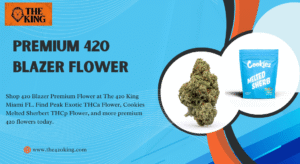
Fashion marketing agencies play a crucial role in shaping the way brands connect with their audience, especially with the rise of a new generation—Gen Z. Born between 1997 and 2012, Gen Z is now the focal point of many marketing strategies. Fashion marketing agencies are adapting to meet their demands, which are vastly different from previous generations. With an emphasis on social values, digital engagement, and individuality, Gen Z has created a unique set of expectations for brands, and agencies are embracing these challenges with innovative solutions. This article explores how fashion marketing agencies are aligning their strategies to cater to Gen Z’s ever-evolving preferences.
Understanding Gen Z’s Unique Preferences in Fashion Marketing
Gen Z is the first generation to grow up entirely immersed in the digital age. Their relationship with fashion is largely influenced by their access to the internet, social media platforms, and digital trends. Fashion marketing agencies have had to rethink traditional methods and embrace a more digital-first approach. For this generation, fashion is not just about clothing—it’s about self-expression, inclusivity, and social awareness.
Gen Z values transparency from brands, expecting them to be authentic and align with their personal values. Fashion marketing agencies need to adjust their strategies to build trust with this highly discerning audience.
The Role of Social Media in Gen Z’s Fashion Choices
Social media is at the heart of how Gen Z consumes fashion. Platforms like Instagram, TikTok, and Snapchat are not just channels for entertainment but are key drivers of fashion trends. Fashion marketing agencies must utilize these platforms effectively, understanding the nuances of each to engage Gen Z in meaningful ways. For instance, TikTok’s short-form video content allows brands to create viral trends that resonate with Gen Z’s desire for quick, engaging content.
Fashion marketing agencies are increasingly focusing on influencer partnerships, not just with celebrities, but with micro and nano influencers who have smaller but highly engaged followings. These influencers are seen as more relatable and authentic, which resonates with Gen Z’s preference for realness over polished celebrity endorsements.
Sustainability and Ethical Fashion: A Must-Have for Gen Z
Sustainability is one of the most important issues for Gen Z. This generation is incredibly aware of environmental issues and social justice, and they expect brands to reflect these values in their business practices. Fashion marketing agencies are responding by promoting brands that focus on sustainability and ethical production.
Brands are now more transparent about their sourcing, manufacturing processes, and environmental impact. Fashion marketing agencies are not only highlighting these practices but are also educating Gen Z on the importance of supporting eco-conscious brands. Campaigns that emphasize sustainability, such as those focusing on recycled materials or ethical labor practices, tend to resonate strongly with Gen Z consumers.
Personalization and Customization: Key to Gen Z Engagement
Gen Z expects personalized experiences when interacting with brands. They are accustomed to tailored content on social media platforms, and they expect the same level of personalization from fashion brands. Fashion marketing agencies are utilizing data analytics and AI tools to create personalized shopping experiences, recommendations, and advertisements that appeal directly to individual preferences.
Additionally, Gen Z loves customization. Whether it’s customizing a t-shirt or selecting specific fabrics and colors, this generation enjoys having a unique product that reflects their individuality. Fashion marketing agencies are working closely with brands to offer these customized experiences, ensuring that Gen Z feels empowered in their purchasing decisions.
Embracing Digital Innovation: Virtual Try-Ons and Augmented Reality
One of the most significant ways fashion marketing agencies are adapting to Gen Z’s demands is by embracing digital innovation. Augmented reality (AR) and virtual try-on technologies are becoming standard in the fashion industry. Gen Z is used to interacting with technology in a seamless and immersive way, and these tools provide a way to engage them like never before.
Fashion marketing agencies are incorporating AR into online shopping experiences, allowing Gen Z consumers to virtually try on clothes, shoes, or accessories before making a purchase. This reduces the uncertainty that comes with online shopping and enhances the overall shopping experience.
The Rise of User-Generated Content and Community Building
Gen Z highly values authenticity, and one of the ways fashion marketing agencies are adapting is by encouraging user-generated content (UGC). Brands are shifting away from traditional advertising and instead focusing on building communities where users can share their personal experiences with products. Fashion marketing agencies help facilitate these communities by creating campaigns that encourage Gen Z to share their fashion choices, creating a sense of belonging.
UGC not only helps create a sense of authenticity but also gives brands a chance to showcase real customers using their products. By involving Gen Z in the content creation process, fashion marketing agencies create a sense of inclusivity that resonates deeply with this generation.
Collaboration with Gen Z Creators
Another significant shift in how fashion marketing agencies are adapting to Gen Z’s demands is through collaborations with Gen Z creators. These creators are not just influencers; they are trendsetters, content creators, and often the ones driving the culture of fashion.
Fashion marketing agencies are recognizing the power of these creators and are partnering with them to co-create collections, design products, or even curate content. This partnership not only taps into Gen Z’s preference for inclusivity but also positions the brand as being in touch with the trends and values of the generation.
Fostering Inclusivity and Diversity
Gen Z is perhaps one of the most diverse generations, and inclusivity is crucial to them. Fashion marketing agencies are responding to this demand by promoting campaigns that celebrate diversity in all its forms. Whether it’s through body positivity, gender inclusivity, or racial representation, fashion brands are expected to reflect the diverse makeup of Gen Z consumers.
Agencies are working with brands to ensure that their marketing campaigns feature a wide range of body types, skin tones, and gender identities. This not only helps brands connect with a broader audience but also builds loyalty among Gen Z, who are keen on supporting brands that prioritize inclusivity.
The Shift Towards Value-Driven Campaigns
Finally, fashion marketing agencies are adapting by creating value-driven campaigns that align with Gen Z’s desire for meaning and purpose. Gen Z cares about more than just the products they purchase; they want to know that their buying decisions are making a positive impact on society. This is why fashion marketing agencies are creating campaigns that highlight a brand’s commitment to social causes, charity work, or community initiatives.
By aligning brands with causes such as environmental sustainability, social justice, or mental health awareness, fashion marketing agencies are positioning them as not just sellers of fashion but advocates for positive change.
Creating Seamless Multi-Channel Experiences
Fashion marketing agencies are also aware that Gen Z consumes content across multiple platforms, and they want a seamless experience between these platforms. Whether it’s browsing on Instagram, shopping on an e-commerce site, or watching fashion tutorials on YouTube, the journey from discovery to purchase must be fluid.
Agencies are now focusing on creating omnichannel marketing strategies that allow Gen Z to interact with brands on their terms. This could mean syncing social media ads with e-commerce platforms, creating shoppable posts, or ensuring a smooth transition between a brand’s website and their physical store experience.
Navigating the Future: What’s Next for Fashion Marketing Agencies?
As Gen Z continues to evolve, so too will the strategies employed by fashion marketing agencies. The key takeaway is that this generation demands transparency, authenticity, and a deep connection with brands. Fashion marketing agencies will need to continue adapting to new digital trends, focusing on personalization, and building strong community relationships with Gen Z.
To stay relevant, agencies must always be one step ahead, predicting what matters most to this ever-evolving generation. Fashion marketing agencies that embrace sustainability, inclusivity, and digital innovation are likely to remain at the forefront of the fashion industry.






